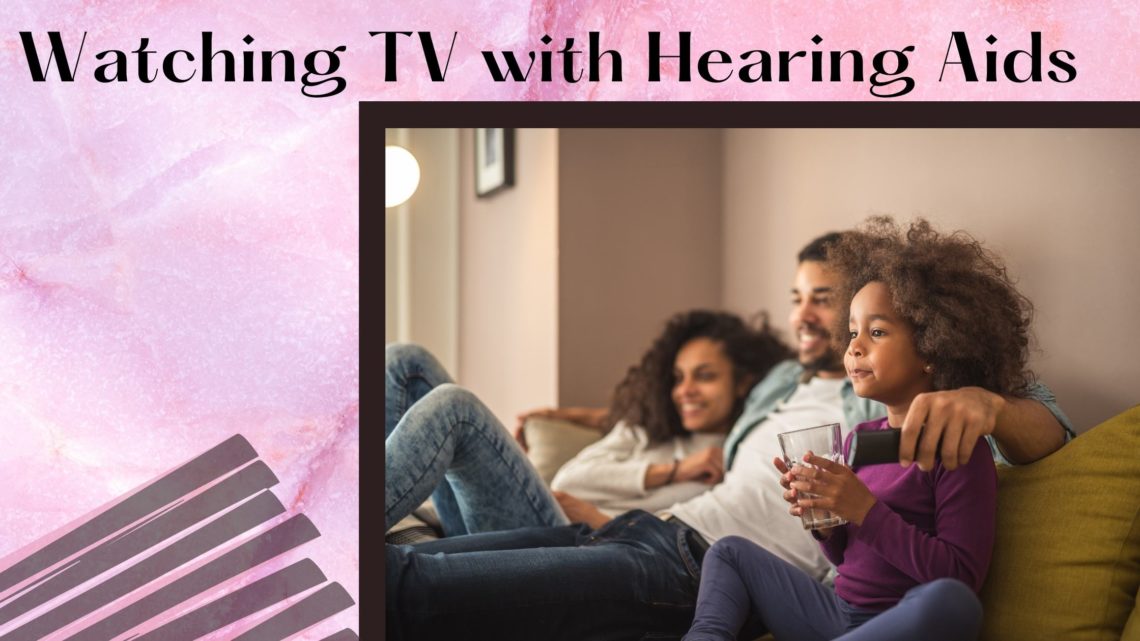What is your favorite TV show right now? These days it seems there are so many options for quality programming, there is something for everyone. When you finally settle down to watch your favorite television program of choice with friends or family, do you ever find that they complain you turn the volume up too loud? While the volume might seem fine to you, these regular conflicts can cause resentment over time, especially for those who regularly relax together while watching TV. At the root of these conflicts may be an undiagnosed hearing loss. It’s important to understand that there are so many tools to amplify the television these days, ultimately these conflicts aren’t necessary. Let’s explore some of the many options to aid in amplification of TV audio so you can enjoy your favorite programing with friends and family and leave arguments around volume in the past.
Watch the Decibel Level
The natural instinct when you can’t hear the TV is to turn up the volume. However this can actually distort the sound, which ultimately won’t improve your situation. Resist the urge to pump up the volume. If your friends and family are complaining that the volume is hurting your ears, most likely it’s hurting yours as well. Hearing loss is a progressive condition which has the potential to become worse overtime, increasing your risk exponentially for lower income, unemployment, cognitive decline, dementia, falls, accidents, and hospitalization. Watch the decibel level while you enjoy the TV.
Invest in High Quality Speakers
The speakers you listen to matter. A less nuanced speaker will distort sound and make it harder to hear. High quality speakers will enhance sound, so you don’t need to feel the need to turn up the volume to hear. With clarity and distinction of sound you’ll find a more enjoyable listening experience and get the most out of your television and movies of choice.
TV Headphones
Using headphones to listen to media eliminates distracting noises and sounds around you. It also allows you to control the volume. Headphones are amazing for listening clearly, but it’s important to listen safely. The World Health Organization (WHO) estimates that around 50 percent of people ages 12 to 35 are at risk of hearing loss due to prolonged and excessive exposure to loud sounds, such as music heard through personal audio devices. Make sure to keep the volume turned down to 60% of its potential and take listening breaks. There are assistive listening devices such as RabbitEARS which are in effect a set of headphones which receive a signal from your TV headphone jack, enhancing sound without disturbing other viewers around you. Assistive listening devices allow you to listen safely, and even adjust the tone so you can hear more easily.
Bluetooth Connectivity
You might also enjoy Bluetooth compatible hearing aids. Bluetooth connectivity allows you to pair your TV to send audio signals directly to your hearing aids. This allows you to amplify the sounds you struggle with based on your hearing exam, while allowing the rest of the sounds to be picked up by your existing hearing. Besides the TV, Bluetooth technology allows you to connect to all of your Bluetooth compatible media devices such as your smartphone, computer and car stereo. Enjoy clear phone conversations, GPS driving directions and music delivered clearly directly to your ears wirelessly.
Rely on Subtitles
Instead of blasting the volume, turn on the closed captioning. This is a good idea even if you wear hearing aids. Closed captioning is available on every major streaming service, Television station and manufacturer. If you miss a word here and there, you can read what’s being said, without the frustration of missing words and getting confused. Find the closed captioning settings in the TV menu of the CC button on your TV remote.
Treat Your Hearing Loss
If you find that you struggle to hear the TV on you are already turning on the closed captioning to hear, there is a good chance you have a hearing loss. Even a mild hearing loss can start to cause conflict over the volume of the TV and contribute to other devastating effects of hearing loss. If you suspect you have a hearing loss, don’t wait till it gets worse. Schedule a hearing exam today.

